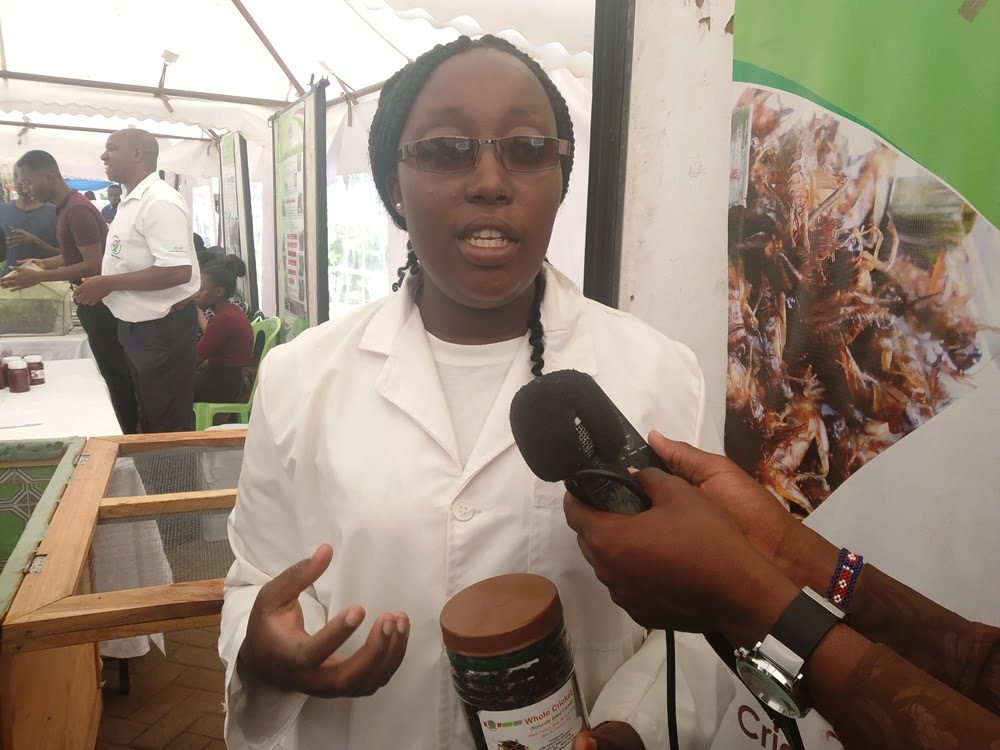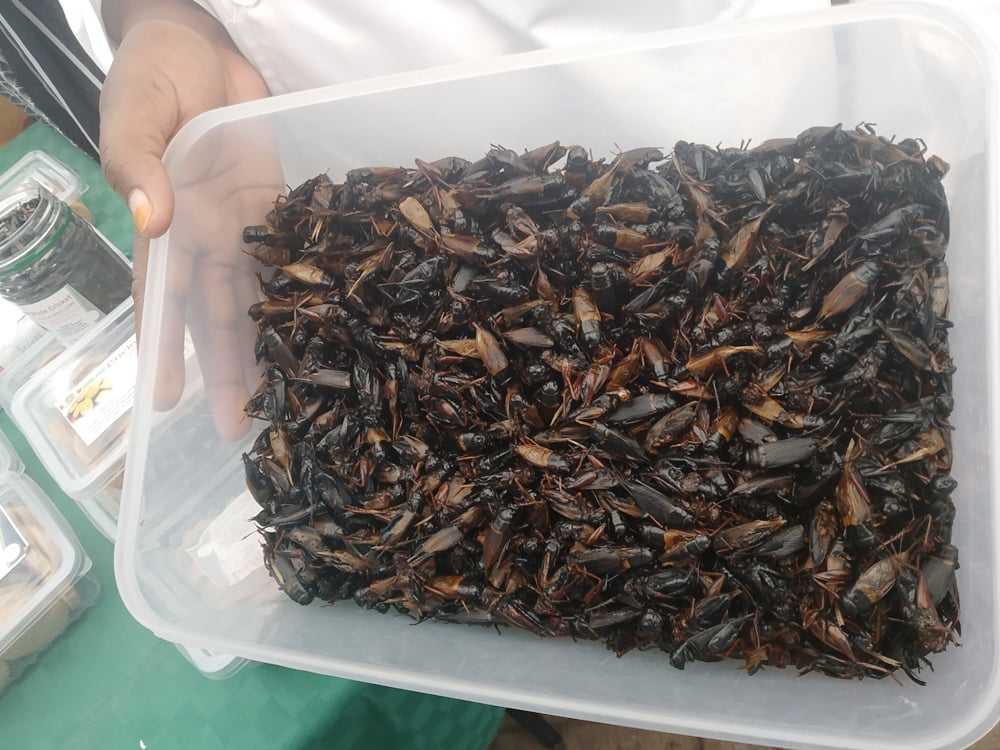By Kamau Njoroge
The desire to diversify sources of nutrition and improve the country’s food basket made Stella Maina, a researcher at Jomo Kenyatta University of Agriculture and Technology (JKUAT), embark on a research on rearing of crickets.
Ms Maina, a researcher at the university’s insect farm, narrated how she came to find out that crickets have a high nutritional value to both humans and animals, especially poultry, and later started the project of rearing and value addition to crickets at JKUAT’s insect farm.
She notes that crickets have 60 percent of proteins rich in zinc, iron and vitamin B12.
For now, she is leading other researchers and students in value addition of the crickets by baking cookies and cake muffins using milled and dried crickets that have been reared at the farm.
Maina also noted that they are currently producing porridge flour made from crickets, which is highly nutritious and best for weaning kids. She told this writer that the demand for cricket products is very high and had overwhelmed their capacity.

She also said that poultry feed manufacturers in the region had tendered for the supply of crickets from the university’s farm but their production could not meet the demand. Crickets are primarily used as supplements in poultry feeds.
She traced how they initially collected crickets from the thickets and started rearing them in a house within the institution, but then later realized that the mortality rate was high due to the unfavourable environment.
“It became very hard to collect the cricket eggs so that we could start a new colony. Again the crickets were dying at a very high rate so we had to devise other plans,” she said.
Maina said that they decided to import cricket eggs from Germany and also fetched others from the International Centre of Insects Physiology and Ecology (ICIPE) in Nairobi and incubated them to start the farm’s first colony.
She noted that crickets are better reared in egg trays since they provide a dark environment suitable for the crickets.
The researcher, who pointed out that cricket rearing is a profitable venture, said after collecting enough eggs to put up another colony, they harvest the adults.
“After harvesting the adults, they are cleaned with warm water and then dried in the sun or frozen. They are then cooked just like peanuts to make them crunchy,” she said.
She, however, noted that their products were yet to reach supermarkets shelves, although plans were at an advanced stage to have them branded and properly packaged.
Maina said their training of farmers across Kiambu County had bore fruit, noting that some 24 farmers had already started supplying them with crickets.
“Farmers willing to start up can buy cricket eggs at Sh.500 per plate. The place harbours between 2500 and 5000 eggs. Again they take less time to hatch and mature,” she said. “In addition, they don’t require a large portion of land to be reared; they can be reared in boxes measuring 4mx6m,” she added.
Maina said they were currently conducting sensitization and training programmes to bring more cricket farmers on board so as to improve production to satisfy the growing demand.
A kilo of crickets is sold at Sh.1000, made up of roughly a thousand crickets.






